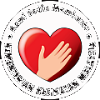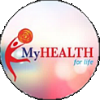WHAT IS ANXIETY?
Anxiety is a normal reaction to stress or danger, but constant feelings of tension and apprehension may lead to an anxiety disorder. Most anxiety disorders can be treated successfully, usually with a combination of counseling and medicines.
ANXIETY DISORDERS
There are several different forms of anxiety disorder including:
- Generalized anxiety disorder:
A generalized anxiety disorder involves excessive, almost constant anxiety and worry about something such as work, money, health, relationships or safety.
- Phobias:
A phobia is an intense fear or something (e.g. heights, animals, closed spaces, social situations). A person with phobia will try to avoid what they fear and this behavior can interfere with their life.
- Panic disorder:
People with panic disorder have sudden spontaneous attacks of intense fear and anxiety (panic attacks) which may not be associated with a threatening situation. A person experiencing a panic attack may feel like they have lost control of their body and emotions.
- Obsessive compulsive disorders (OCD):
People with OCD have continual thoughts and fears (obsessions) that cause anxiety and lead them to continually repeat certain tasks or rituals (compulsions) in order to feel less anxious.
For example, they may worry about cleanliness and need to wash their hands repeatedly, or be concerned that they did not lock a door and have to check it constantly. These tasks can be time consuming and interfere with daily life. People with this condition usually know their behavior is not sensible, are embarrassed by it and try to hide it.
- Post traumatic stress disorder (PTSD):
PTSD is a serious psychological reaction that some people develop after an extremely frightening or traumatic experience such as war, abuse, a natural disaster or a major accident. PTSD can persist for long time even after the traumatic event is over. Symptoms include intrusive memories, nightmares, numbed feelings, anxiety and/or depression.
SIGNS AND SYMPTOMS
- Feeling irritable, restless or out of control
- Difficulty thinking or concentrating
- Difficulty sleeping
- A fear that something bad will happen
- A fast heart beat
- Sweating
- Headache
- Nausea, vomiting, diarrhea
- Trembling
- Dizziness
- Tense muscles
- Chest pain or tightness
- Rapid breathing or difficulty in breathing
- A feeling of choking or a lump in the throat
- Fatigue
- Visual disturbances
SELF CARE
- Find and avoid the triggers
- Share you anxious thoughts and feelings with someone you trust
- Learn about your anxiety disorder and how to manage it
- Exercise at a moderate level for at least 30 minutes on all or most days of the week
- Learn and practice relaxation techniques to relax your body and mind
- Get adequate sleep and relaxation
- Eat a healthy, well balanced diet, including plenty of fruit, vegetables and whole grains. Limit foods high in fat, sugar and salt.
- Use less cigarettes, alcohol and caffeine – they can worsen the anxiety symptoms
TREATMENT
SELF MEDICATION GUIDE – Medicine for Anxiety
(please click at the name of medicine below for further information):
- Hydroxyzine
PRESCRIPTION MEDICINES
- Alprazolam
- Amitriptyline
- Bromazepam
- Chlordiazepoxide
- Citalopram
- Clobazam
- Clomipramine
- Diazepam
- Dothiepin
- Duloxetine
- Escitalopram
- Flupenthixol
- Fluoxetine
- Fluvoxamine
- Imipramine
- Midazolam
- Paroxetine
- Sertraline
GETTING HELP
Help is available for people with anxiety disorders and their families and friends. Doctors, psychologists and counselors can give professional help and there are community support groups for many types of anxiety disorders.
REFERENCES
- Pharmacy Self Care Health Information, Pharmaceutical Society of Australia, November 2008.
- http://www.emedicinehealth.com





 DUTA KENALI UBAT ANDA
DUTA KENALI UBAT ANDA KENALI.UBAT.ANDA@MOH.GOV.MY
KENALI.UBAT.ANDA@MOH.GOV.MY




